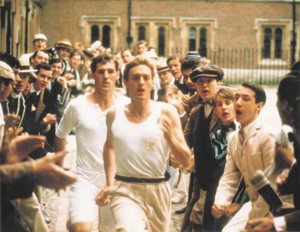A Man for All Seasons
Posted on December 13, 2002 at 5:17 am
Plot: The Lord Chancellor, Sir Thomas More (Paul Scofield) is a man of great principle and a devout Catholic in the time of King Henry VIII. The King wants to dissolve his marriage to the queen (a Spanish princess and the widow of his late brother) so that he can marry Anne Boleyn. All around him, courtiers and politicians plot to use this development to their advantage, or at least to hold on to their positions, given the conflict between the Church’s position that marriage is indissoluble and the King’s that it must be dissolved. For More, the choice is clear, and God comes before the King. But because of More’s incorruptible reputation, his support is crucial. Every possible form of persuasion and coercion is attempted, but More will not make any affirmative statement on behalf of the divorce (though he refrains from opposing it explicitly). And More will not lend his allegiance to the new church headed by the King.
Finally, having lost his position, his fortune, his reputation (on false charges) and his liberty, More is sentenced to death. He accepts it with grace and faith, forgiving the executioner.
Discussion: This is an outstanding (and brilliantly filmed) study of a man who is faced with a harrowingly difficult moral choice. The choice remains clear to him, even at great cost not just to himself but to his family. Yet within his clear moral imperative, he does calibrate. His conscience does not require him to work against or even speak out against the divorce; he need only keep silent.
Questions for Kids:
· What does the title mean?
· The same director made “High Noon” — do you see any similarities?
· What would you consider in deciding what to do, if you were More?
· What other characters in history can you think of who sustained such a commitment to a moral principle?
Connections: Kids and teens should read some of the books about this period, and see if they can find reproductions of the paintings by Hans Holbein of the real-life characters. They may want to watch some of the many movies about it as well. As history shows, the marriage that led to the establishment of the Church of England did not last. “Anne of the Thousand Days” tells the story of the relationship of Henry VIII and Anne Boleyn, including, from a different perspective, some of the events of “A Man for All Seasons.” A British mini-series, “The Six Wives of Henry VIII” devotes one episode to each wife, and is more historically accurate and very well done. Henry VIII is such a colorful figure that he appeared in several movies, including the classic “Private Life of Henry VIII” with Charles Laughton. His death appears in the (completely fictional) “Prince and the Pauper,” and his daughter with Anne Boleyn, Queen Elizabeth I, is featured in several movies, including “The Private Lives of Elizabeth and Essex” (with Bette Davis and Errol Flynn) and “Mary, Queen of Scots” (with Glenda Jackson as Elizabeth) and “Mary of Scotland” (with Katharine Hepburn as Mary and Florence Eldridge as Elizabeth).
This movie won six Oscars , including Best Picture, Director, and Actor.

